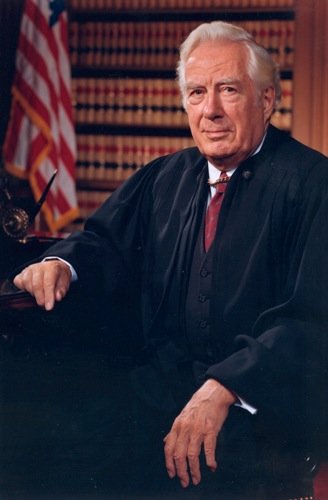Brady v. United States
Case Overview
CITATION
397 U.S. 742 (1970)
ARGUED ON
November 18, 1969
DECIDED ON
May 4, 1970
DECIDED BY
Legal Issue
Is a guilty plea invalid if the defendant entered into it to avoid the possibility of the death penalty?
Holding
No, the threat of the death penalty does not invalidate a guilty plea if it is made intelligently and willingly.
Charles Boblit and John Brady after being arrested by law enforcement in 1959 | Credit: The Evening Sun/The Marshall Project
Background
In 1959, Robert Brady was charged with kidnapping under the Federal Kidnapping Act, which allowed the death penalty based on a jury recommendation. After his co-defendant was sentenced to death following a jury trial, Brady chose to plead guilty. In exchange for his guilty plea, Brady was not subjected to the death penalty and instead received a 50-year prison sentence.
Brady later sought to have his conviction overturned, arguing that his guilty plea was made under the duress of the possible death penalty and was therefore not made voluntarily. His conviction was upheld by the lower courts and on the appellate level before the Supreme Court granted certiorari to determine whether a guilty plea entered under the threat of a possible death sentence constituted a voluntary and intelligent plea free from coercion, as required by the Constitution.
Summary
8 - 0 decision for the United States
Brady
United States
Harlan II
Stewart
Black
White
Douglas
Brennan
Marshall
Burger
Opinion of the Court
Writing for a unanimous Court, Justice Byron White held that a guilty plea is not invalid simply because it was entered to avoid the possibility of a death penalty, as long as the plea was made voluntarily and with a full understanding of its consequences. White argued that the Court’s decision in United States v. Jackson (1968) did not mean that all guilty pleas influenced by the fear of the death penalty were involuntary. Instead, he asserted that a plea is voluntary if it is an informed and intelligent choice among the alternatives available to the defendant. White explained, “[a] plea of guilty is not invalid merely because entered to avoid the possibility of the death penalty,” and highlighted that Brady's plea met the standard of voluntariness as it was made “by one fully aware of the direct consequences.”
White emphasized that the voluntariness of a plea must be evaluated based on the totality of circumstances, including the defendant’s knowledge of the consequences and the context in which the plea was made. In Brady’s case, his plea was considered voluntary because it was made after advice from competent counsel and with a clear understanding of the situation. White noted that even if the possibility of the death penalty influenced Brady’s decision, this did not necessarily make the plea involuntary or invalid.
White also addressed the broader implications of prohibiting all guilty pleas influenced by the possibility of a harsher penalty, arguing that such a rule would unduly restrict the flexibility of the criminal justice system. He maintained that the presence of competent counsel and the opportunity to make an informed decision ensured the voluntariness of Brady’s plea, distinguishing his situation from cases involving possible coercion.








